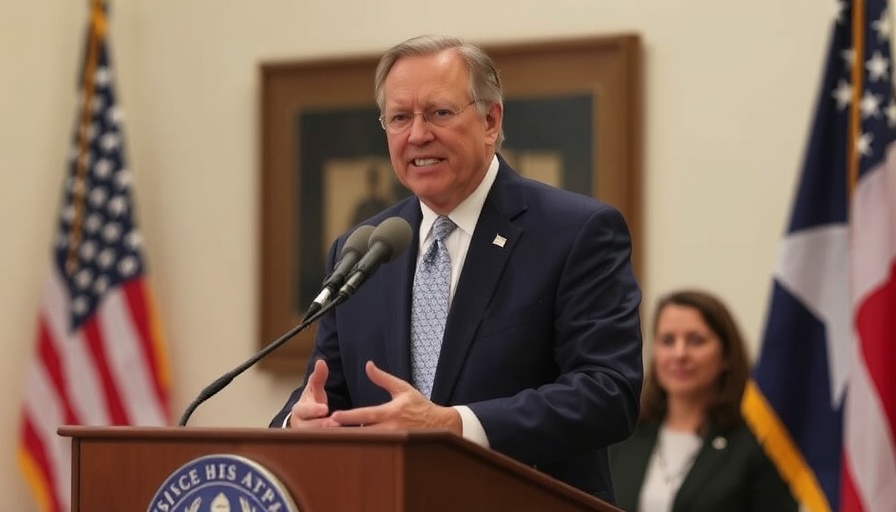
Abbott's Claims Spark Controversy Over Election Delays
In the realm of Texas politics, the leadership of Governor Greg Abbott is under scrutiny following the untimely death of Democratic U.S. Rep. Sylvester Turner. Abbott, who holds the authority to call for special elections, is attributing the delay in filling Turner's vacant congressional seat to ongoing elections issues in Harris County, Texas’s largest county. His decision has ignited accusations from Democrats, who suggest that the timing favors Republican interests.
Understanding the Political Landscape in Harris County
The Houston area is not merely a political backdrop; it represents a dynamic and diverse district comprising nearly 800,000 residents, many of whom are minorities. With such a significant demographic, the electoral machinery's effectiveness becomes paramount. Abbott's statements cite past election difficulties—ranging from inadequate polling resources to long wait times. This has led to a palpable tension between state leadership and local election officials.
Local Elections Officer Responds to Abbott's Criticism
Teneshia Hudspeth, Harris County’s chief elections officer, has countered Abbott's claims, asserting that the county is fully capable of conducting the special election. Her defense sheds light on the growing frustrations local officials face as they navigate both logistical hurdles and political narratives. This confrontation exemplifies the dual responsibility of election administrators—maintaining procedural integrity while also facing political fire.
Democratic Candidates Threaten Legal Action
The implications of this delay are far-reaching, especially for the Democratic candidates eyeing Turner's seat. Christian Menefee, Harris County Attorney, has voiced intentions to pursue legal action if Abbott does not expedite the election process. Such threats of litigation not only highlight the high stakes involved but also amplify the urgency for an election to restore representation for the constituents.
The Broader Context: Election Efficiency and Accountability
Election challenges in Harris County are not new. A 2023 law signed by Governor Abbott shifted the responsibility of elections away from the county's elected officials and onto appointed local leaders, sparking debate about accountability and local governance. Abbott's interventions have drawn criticism, with many arguing that they create a perception of undermining local election integrity for political gain.
Continued Scrutiny: What’s at Stake?
The backdrop of these electoral issues carries significant implications for the political balance in Congress, particularly as Democrats and Republicans maintain a fragile control within the House. Such dynamics provide the backdrop for Abbott's apparent motivations, suggesting that the timing of this election may play a crucial role in the political future of Texas.
What Lies Ahead for Harris County Elections?
As Harris County prepares for the upcoming electoral challenges, future predictions indicate that the public's faith in the electoral process may hinge on effective resolutions to the problems highlighted in this debate. Voter engagement and transparency will be essential in moving forward—factors that could either strengthen or weaken the democratic process in Texas.
A Call for Action: Engaging in the Democratic Process
The ongoing developments in Harris County's election saga serve to remind us of the power each individual holds in shaping politics. As citizens await news of the special election, it’s crucial to engage with local issues and voices. Understanding the political landscape empowers voters to make informed decisions that could very well shape the future of their representative governance.
For those residing in Harris County or surrounding areas, it's more than just a political issue—it's a communal one. The call to participate in upcoming events and discussions about local governance has never been more critical. Stay informed through local news channels, and ensure your voice is heard at the polls!
 Add Element
Add Element  Add Row
Add Row 



 Add Row
Add Row  Add
Add 


Write A Comment